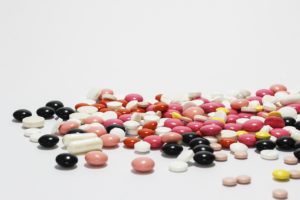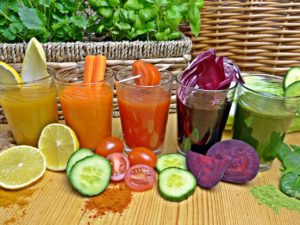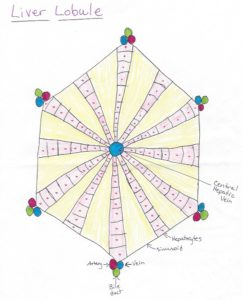Eye Vitamins 2 [Show Notes]

Remember: if a vitamin is good for one place in your body, it’s probably good for a lot of places in your body. It’s a marketing ploy to call them eye vitamins.
Eye Vitamins
- Thiamine (B-1): thiamine is used heavily in your liver, to help metabolize alcohol. Most well-known deficiency in alcoholics. Thiamine also helps nerves produce several neurotransmitters, as well as protects your nerves from inflammatory chemicals (the chemicals in your body that trigger swelling and pain). You don’t want inflammation in your optical nerves. You also don’t want the signals from your eyes to your brain and back to be slow.
- Folic acid: important for pregnancy women and fetal development, deficiency can cause a type of anemia. It’s main job is to help make accurate copies of the DNA and RNA when cells are dividing and multiplying. You don’t want typos in your DNA! This is important for your eyes because the cells of your eyes is because they are some of the fastest reproducing and dividing cells in your body.
- Omega-3 Fatty acids: Beneficial for heart health, found in oils. Oils in your body are lubricating. Omega-3 fatty acids are building blocks for the cholesterol that is build into cell membranes that keep the fluid and slippery. The body also uses O3FA to produce the natural lubrication in your eye.
- N-Acetylcystine (NAC): an amino acid (building block of protein). Glutathione – your body’s naturally produced antioxidant. NAC is used when the cells build and store glutathione. Glutathione focuses mainly on oxygen-based free radicals.
- Alpha Lipoid Acid (ALA): another antioxidant. Found in sources of natural oils – seeds and nuts.
- Lutein and Zeaxanthin: 2 nutrients that are found in red, orange, and yellow fruits and vegetables (and that actually cause them to be those colors in the first place). Their main goal in your eyes are to prevent blue light damage. Blue light is a short wavelength with a higher speed and energy than the lower colors of light. This energetic light can damage cells in your eyes, so the orange nutrients blocks this energetic waves so you can still see the blue colors, but it’s more chill and doesn’t cause damage to the retina. These nutrients concentrate in the macula.
Connect with me
Support us on Patreon
*NEW* Join the Pharmacist Answers Podcast Community on Facebook
Subscribe: iTunes, Stitcher, GooglePlay, TuneIn Radio
Music Credits: “Radio Martini” Kevin MacLeod (incompetech.com) Licensed under Creative Commons: By Attribution 3.0 http://creativecommons.org/licenses/by/3.0/


